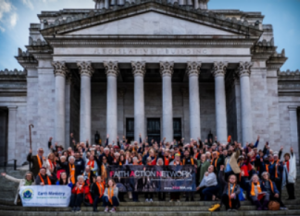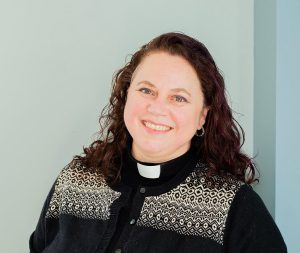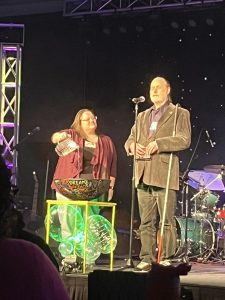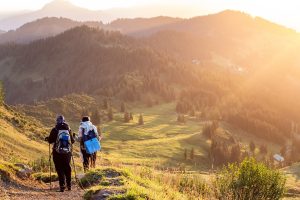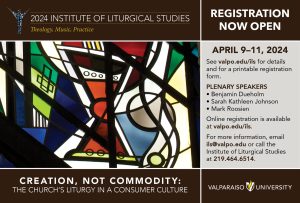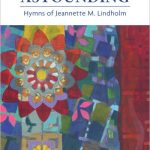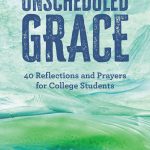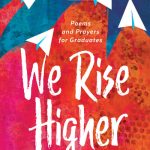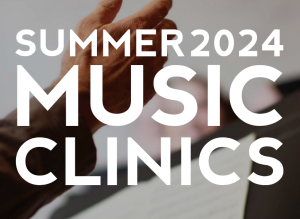Following are updates shared from submissions of the Lutheran Office for World Community and state public policy offices (sppos) in the ELCA Advocacy Network last month. Full list and map of sppos available.
U.N. | ARIZONA | CALIFORNIA | MINNESOTA | OHIO | PENNSYLVANIA | WASHINGTON | WISCONSIN
New York
Lutheran Office for World Community (LOWC), U.N. – ELCA.org/lowc
Christine Mangale, Director
As our Lutheran Office for World Community colleagues conclude vigorous activity during the Commission on the Status of Women (CSW68), no March update is available.
Arizona
LUTHERAN ADVOCACY MINISTRY ARIZONA (LAMA) lamaz.org
Solveig Muus, Director
LAMA hosted its 3rd annual Lutheran Day at the Legislature on January 18. Gathered were 125 Lutherans and friends representing 24 of Arizona’s 30 legislative districts to hear remarks from Secretary of State Adrian Fontes, Arizona’s longest-serving senator, Lela Alston, Bishop Deborah Hutterer and others, and then met with their legislators about hunger, the water crisis, equal access to voting, and the need for low-income housing. Participants met with more than 40 lawmakers, practicing neighbor love through advocacy and demonstrating that faith is an action word.
LAMA co-hosted its 2nd annual Anti-Hunger Advocacy Day at the Capitol on February 21. LAMA co-founded the Arizona Anti-Hunger Alliance, a statewide coalition of food banks, farmers, healthy school meals advocates, community gardeners, justice advocates, state agencies and faith-based organizations who share common values – ending hunger! – to educate our legislators and advocate for the more than 750,000 Arizonans who face hunger every day.
The Grand Canyon Synod Hunger Leaders Network sponsored the 40-40-40 Lenten Challenge, an ELCA Region 2 inter-synod challenge. Participating were 708 individuals in 149 congregations across the five synods of Region 2. Based on the enthusiastic response to the challenge and a productive regional meeting at the ELCA World Hunger Leaders Gathering in February, the Region 2 delegates decided to meet regularly to discern how the five synods might collaborate as church together around hunger.
The Grand Canyon Synod’s Bishop Deborah Hutterer joined other faith leaders and lawmakers from both sides of the aisle on February 15 to discuss the pressing need for affordable, accessible housing, pressing for the passage of Yes In God’s Backyard (YIGBY), legislation aimed at helping Arizona meet the needs of its inadequately-housed citizens.
California
Lutheran Office of Public Policy (LOPPCA) – lutheranpublicpolicyca.org
Regina Banks, Director
LOPPCA has a strong focus on the state budget situation leading up to the May Revision deadline. The Legislative Analyst’s Office projects a potential $73 billion deficit as of February. Our priority areas to prevent the most drastic cuts this year are centered in housing, human services, and climate. A budget letter containing LOPPCA’s specific 2024 budget asks has been completed.
The policy bill process is ramping up in the state legislature as well. A couple bills that we’ve begun to track and support in our office include:
AB 2090 (Irwin) – which would require the Office of Farm to Fork in CA’s Department of Agriculture to work with transportation agencies to prioritize efforts in food deserts, especially counties most impacted by food security. Additionally, the bill would require the office to work with school districts to assess access to school meal programs during academic calendar breaks and school closures.
SB 252 (Gonzalez) – which would prohibit the state retirement systems from making new investments or renewing existing investments of retirement funds in a fossil fuel company.
Upcoming event: Registration is ongoing for our 5th annual Lutheran Lobby Day on Wednesday, May 15th in Sacramento! Register and learn more here: https://lutheranpublicpolicyca.org/lutheran-lobby-day-2024
Minnesota
Lutheran Advocacy Minnesota (LA-MN) – lutheranadvocacymn.org
Tammy Walhof, Director
E-Waste Recycling: Bills to redefine and collect electronic waste have passed House and Senate Environment Committees. Next, they must pass the respective Commerce Committees, and then Ways and Means in the House and Finance in the Senate. Our previous Action Alerts are still valid, but focus on asking legislators to urge their colleagues in the Commerce Committees to pass the bills (H.F.3566 in House; S.F.3940 in Senate). Concerns with small upfront fees to be charged on electronics to pay for statewide collection should be countered by reminding legislators that health costs of toxins getting into groundwater or air are much greater, as are taxpayer costs as counties address fire hazards from electronics in trash.
Affordable Housing: The House Capitol Investment Committee passed H.F.4194 for $500 million in Housing Infrastructure Bonds (HIBs) and an expansion of the possible uses of HIBs to allow funds to be used to address deferred maintenance, insurance, renovations, and more. Our partners at MCCD (Metropolitan Consortium of Community Developers) claim that about one-third of affordable housing residents are at risk of losing housing because operators can’t keep up with expenses (a problem stemming from increasing insurance and pandemic losses). Although we do not expect obstacles at the House Housing Committee, please watch for Action Alerts as HIBs move forward from there.
Lenten Letter Challenge: Action is still possible from this initiative which helps generate action to legislators from your church, committee, group, friends, or wherever through our Lenten Letter Challenge (scroll to mid-page). Action doesn’t need to be tied to Lent, but Lenten season launch was meaningful timing.
Ohio
Hunger Network in Ohio (HNO) – www.hungernetohio.com
Deacon Nick Bates, Director
Gerrymandering Reform NOW!
When legislators are more concerned with small segments of primary voters and cable news quotes, our food pantries, social services, and school groups will not be heard on the local needs. That is why the Hunger Network is all in on gerrymandering reform! The Citizens not Politicians campaign is gathering signatures to put the issue before Ohio voters in November. Luther said that Daily bread includes good government. We need a government where the people choose our representatives not where politicians choose their voters. Learn more at https://www.hungernetohio.com/redistricting
Faith Leaders Legislative Lunch April 16th 11-1pm at the Ohio Statehouse.
Join people of faith and advocates to have lunch with our lawmakers to discuss safe, decent, and affordable housing in Ohio and what can be done to guarantee every Ohioan a bed at night and a full table for dinner. You can reserve your seat at www.hungernetohio.com/events
Pennsylvania
Lutheran Advocacy Ministry in Pennsylvania (LAMPa) – lutheranadvocacypa.org
Tracey DePasquale, Director
LAMPa is excited to open registration for Lutheran Day in the Capitol, and our 45th Anniversary Gala Celebration of Advocates on May 9! We will celebrate and cultivate being church together in Pennsylvania for the sake of the world God loves, lifting up our partnership with ELCA World Hunger as we mark 50 years of striving for a just world where all are fed.
In February, LAMPa staff participated in the World Hunger Leaders Gathering in Texas. Read what Penn. hunger leaders took away from the event. 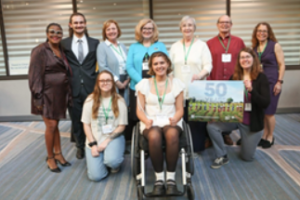
Gov. Josh Shapiro announced his budget in February. LAMPa found much to applaud, but called for more investment in anti-hunger programs to meet the need we are witnessing.
As we marked National School Breakfast Week with a win and a challenge, LAMPa encouraged congregations to step up in support of summer nutrition programs.
LAMPa launched a period poverty postcard campaign on International Women’s Day, Mar. 8, urging lawmakers to support the governor’s request for $3 million for menstrual hygiene products in public schools – a need raised by our ministries with struggling families and individuals across the state.
Recognizing that Pennsylvania is a pivotal state this election year, Gov. Shapiro launched an elections security task force, and LAMPa shared tips and resources for faithful civic engagement as a way of loving our neighbor.
As the daffodils began to bloom in Pennsylvania, LAMPa shared resources for congregations and conferences to mark Earth Day in praise, prayer and action for the care of neighbor and our common home.
Washington
Faith Action Network (FANWA) – fanwa.org
Elise DeGooyer, Executive Director
We are grateful to report that FAN had our successful Interfaith Advocacy Day on February 8. The sun shone upon nearly 200 faithful advocates who gathered from across the state. We heard from plenary speakers including Sen. Yasmin Trudeau and attended workshops on different advocacy topics presented by coalition partners in the morning. Attendees caucused among their districts and met with legislators and staff. This year, the attendees had a unique opportunity of “floor pulls,” and some legislators stepped off the floor to meet their constituents in the lobby. The dynamic presence of FAN advocates at the Capitol served as a reminder of the crucial role faith communities play in legislative advocacy.
As Washington’s 2024 legislative session wrapped up, we have exciting news. At the time of this writing, some bills that we advocated for are nearing the governor’s desk to be signed into law, including HB 2368 Funding for Services for Newly Arrived Immigrants which impacts those who do not qualify for federal refugee programs, and HB 1541 Nothing About Us Without Us to ensure the meaningful participation of people with direct lived experience on state committees. We also witnessed several major policies stall, such as HB 2114 Limiting Rent Increases at seven percent annually, and HB 1579 Establishing a State Office of Independent Prosecutor. Updates can be found on our bill tracker.
While some bills’ journeys to become law may have stopped short this year, FAN’s advocacy does not cease. As the legislators finalized the supplemental budget, FAN network raised our voices to call for budget allocations that meet the environmental and human needs of communities like children in school, senior citizens experiencing heightened food insecurity, and unhoused people.
Wisconsin
The Lutheran Office for Public Policy in Wisconsin (LOPPW) – loppw.org
The Rev. Cindy Crane, Director
Voting: On Wednesday Noon Live we interviewed Jay Heck, Common Cause, and discussed how legislative maps in Wisconsin will impact state elections. Heck has been working on fair maps in Wisconsin and explained the nuances of the new maps. We asked him:
- What just happened to our Wisconsin maps?
- Are the new ones much fairer?
- Why did Republicans hang on to the old ones?
- Why were some Democrats against the new ones?
- How long-lasting are the new maps?
Care for God’s Creation: LOPPW is supporting SB791 that would allow Wisconsin to meet the requirements for the National Electric Vehicle Infrastructure (NEVI) program. Wisconsin is one of two states that has not met these requirements. If passed, Wisconsin’s Department of Transportation would administer $78.5 million in federal funding for electric vehicle infrastructure to have Level 3 DC Fast Electric Vehicle Charging Stations every 50 miles on major state highways.
Immigration: LOPPW has been advocating on four state bills relate to DACA recipients receiving occupational licensing, a tax credit, in-state tuition, and allowing them to be police officers. All but the police officer stipulation failed to pass the Assembly before the session wrapped up. There is some chance the latter will pass in the Senate. We know the Republican authors are committed to bringing the bills back and that there will continue to be bipartisan support.
New Office: LOPPW moved with the South-Central Synod of Wisconsin into its space at Lakeview Lutheran Church in Madison!


